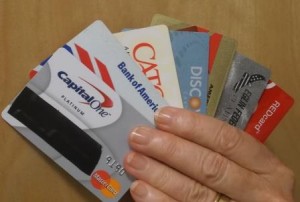
by Angela Hinkle | Mar 11, 2021

FCS Agent: Angela Hinkle Photo Source: UF/IFAS
Angela Hinkle is a Family and Consumer Sciences Agent in Escambia County, specializing in increasing the healthy food and nutrition behaviors of limited-resource families. She graduated from the University of Maryland in Broadcast Communications. After giving birth to a beautiful daughter, she worked for NC State on a grant helping moms breastfeed their new babies. She was offered additional duties from another grant – EFNEP (Expanded Food and Nutrition Education Program). After the breastfeeding grant program ended, Angela re-located to Escambia County, Florida and was able to continue teaching efforts as a program assistant for the EFNEP program there.
As a single mom, Angela really appreciated the help of family, friends, and co-workers in advancing to the position of UF Extension Agent in 2008 and getting her master’s degree in Health Education (with a psycho-social emphasis) from the University of West Florida in 2010.
Along with her staff, Angela works with limited-resource youth and families, educating them in choosing, preparing, and eating healthy when budgets are severely restricted. She says it is definitely a challenge to help people make positive behavior changes and to assist communities in making the healthy choice the easy choice. But she says the successes that participants and community partners share about caring for their families in healthier ways always make it worth it.

Angela Hinkle Prepares Salsa Photo Source: William Reynolds
Other health and wellness Family and Consumer Sciences programming Angela has led includes: “Keeping the Pressure Down,” “Wellness Wednesdays,” “Let’s Walk Florida,” “Cook Smart Eat Smart,” “Feed Them Well,” “Smart Shopping for Families,” and the Growing Series including “Growing a Healthy Pizza,” “Growing Nachos,” “Growing an Ice Cream Sundae,” and “Growing Brunch.”
Angela was born in Trinidad in the West Indies. Her family moved to a trailer on a dirt road in Pensacola, FL when she was about five years old. She then moved around to Maryland, Oklahoma, Indiana, and North Carolina before finally circling back to Pensacola. In each place she has lived, food has always been a big passion. She loves to read about food, talk about it, make it, share it, explore the culture and history behind it, and eat it in a variety of settings. This passion makes her a great fit for the EFNEP program.
Her soul animal is a turtle, (usually moving very slowly, enjoying time in her own shell, but moving surprisingly quickly when prompted). In addition to food, Angela likes being with her dog (who is getting on in years but likes to take her for a walk every morning), a nice warm cup of tea, going to the movies, reading for pleasure, traveling and sight-seeing, and getting to spend time with her adult daughter.
by Elaine Courtney | Sep 4, 2013

Credit card debt is something that hangs over many Americans. According to the Federal Reserve, in April 2013, the average credit card debt equaled $3,364 per U.S. adult. This assumes that EVERY adult has a credit card and that those cards carry debt. Of course, not all adults own a credit card. Young Americans are among those ditching their credit cards.
The only way to reduce credit card debt is to make payments each month and not add to that debt. The main way to reduce this even faster is to pay more than the minimum payment each month.
Save Nearly $4,000 by Paying More than the Minimum Balance
By only paying the minimum monthly balance, you are guaranteed to pay this debt for a longer time and pay more in total cost. For example:
|
Total Credit Card Debt
|
Monthly Payment
|
Years to Pay Off
|
Total Cost
|
|
$3,364 (at 14.96% Interest)
|
$67.28 (min. payment)
|
19 Years 5 Months
|
$7,618.63
|
|
$3,364 (at 14.96% Interest)
|
$87.28 (min. payment +$20)
|
4 Years 4 Months
|
$4,533.67
|
|
$3,364 (at 14.96% Interest)
|
$107.28 (minimum payment +$40)
|
3 Years 4 Months
|
$4,225.11
|
|
$3,364 (at 14.96% Interest)
|
$167.28 (minimum payment +$100)
|
1 Year 1 Month
|
$3,841.40
|
Similar information is available on your monthly credit card statement. It will identify how long it will take you to pay your debt if you only pay the minimum or if you pay a little extra. More info on how to read your bill is found at: http://www.federalreserve.gov/creditcard/flash/readingyourbill.pdf
You also can use an online calculator to determine costs and payoff information.
http://www.federalreserve.gov/creditcardcalculator/
Want to avoid the minimum payment trap completely? Follow these tips from financial experts:
- Know What You Owe – Make a list of all outstanding debt balances with the names of creditors, monthly payments, and APRs (interest rates).
- Run the Numbers – Use the Minimum Payment Calculator http://www.federalreserve.gov/creditcardcalculator/ and calculate the cost of making minimum and larger payments on various amounts of debt.
- Use a “power payment” to pay off your debt. Visit http://powerpay.org/
- Read the Numbers – Check your credit card statements about the cost of making minimum payments.
- Pay Cash – Instead of making new purchases with a credit card and adding them to outstanding balances, save up and pay cash (or use a debit card) to avoid interest charges.
- Set a Goal – To know how much to save, set a target date and dollar amount and work backwards. For example, $3,000 for a big screen television in a year requires weekly savings of about $58 ($3,000 ÷ 52).
In the example above, finding an extra $100 a month to apply to credit card payments reduces the time it will take you to pay off this debt from over 19 years to just over one year AND saves you nearly $4,000.
Need help finding ways to save? Take the Florida Saves pledge to make a commitment to yourself to save and to receive emails and/or text messages to keep you motivated.
Contact your local UF/IFAS County Extension office to find more ways and resources to help you manage your money. Be sure to join us for the Women & Money Program Oct. 1, 8, & 15!




